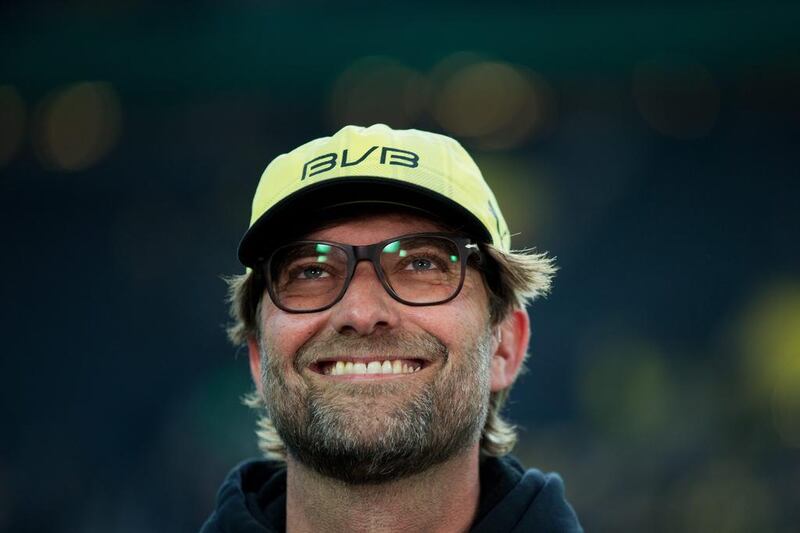When Liverpool look for a new manager, usually the last thing they do is pay attention to the section on an applicant's resume marked "Playing Career". Gerard Houllier, who guided the club in the early part of this century, barely had one; Rafa Benitez's was cut short by injury before it could gather any significant senior statistics. Much the same could be said of Brendan Rodgers, who was sacked last Sunday.
Roy Hodgson, appointed in 2010 and gone in 2011, had a background like Houllier’s. Only when Kenny Dalglish replaced him, briefly, did the club put playing-career medals – and stacks of them – on display in the dugout.
Jurgen Klopp did not become Liverpool’s first choice to replace Rodgers on the back of what he ever achieved as a player, although there are details in what was a long stint as a professional that provide some helpful pointers to the kind of coach that he is.
Read more: Richard Jolly on the slip that set Brendan Rodgers's downfall in motion
He had an 11-year senior playing career, entirely spent in the German second division, but divided between operating as a striker and then, for the last six years, as a defender: That’s two distinct perspectives. He represented just one club, Mainz, between 1990 and 2001: There’s a strong line of loyalty, community in his record.
It runs through his coaching curriculum, too. Mainz put him in charge of their first team once he retired from playing and he stayed with them for seven years, celebrating promotion to the top flight, qualifying for Europe, and also suffering relegation: Some big highs, and a notable low. He was a coach still stuck in the second tier when Borussia Dortmund offered him the challenge of resurrecting their sleeping, wounded, hard-up giant.
That was his big break, and as the Dortmund chief executive, Hans-Joachim Watzke, once told me, it surprised many in German football.
“He was a bit different, with his jeans and his supposed scruffiness. But when we talked to him, we were sure. You always had the idea, playing against his Mainz team, they had one or two players more than you had because of their energy, their organisation and their perfect planning. He had the philosophy of this radical football, pressure football. For that he was completely the right coach for us.”
The “supposed scruffiness” has become something of trademark. Klopp is not a man to put aside 15 minutes every morning for a shave, although the German tabloids reported a couple of years ago he had had some cosmetic help with his thinning hair. He is as likely to wear a baseball cap in the technical area as a suit and tie. But long before Dortmund made him their head coach at the age of 40, they knew he was very presentable, and had a populist touch.
They, like millions of Germans had seen that during the 2006 World Cup, when Klopp joined the pundits panel on the channel ZDF to offer analyses of matches. He provided insight, charisma, cut through jargon and spoke to viewers in a way they appreciated. People liked Klopp for his lack of pretension, his enthusiasm, his obvious love of his sport. That summer, he stopped being just the respected young coach of provincial Mainz and something of a national star. “He is” Waztke said, “a good entertainer.”
His Dortmund, low on resources when he joined, became as distinctive as their coach. They rose to win two German titles, in 2011 and 2012, and reach a Champions League final in 2013. They were a youngish team with a tigerish zeal about them, aggressive in retrieving possession, fast and urgent on the counter-attack when they had the ball.
Klopp needed them fit and energetic for that to work, and one of the theories offered up as an explanation for Dortmund’s plunge in his last season there, 2014/15, when they were in the relegation zone at New Year is that the players felt burnt out after so much chasing and harrying.
But there was sadness among Dortmund supporters to see Klopp go last May. He had engaged vividly with the fans and the city during his time there. That sort of connection would appeal particularly to the decision-makers at Anfield. Some of them may be from overseas, but they appreciate Liverpool the club regards itself as a very special community, suspicious of anybody remote or cold. Klopp very, very rarely seems like that.
Follow us on Twitter @NatSportUAE






